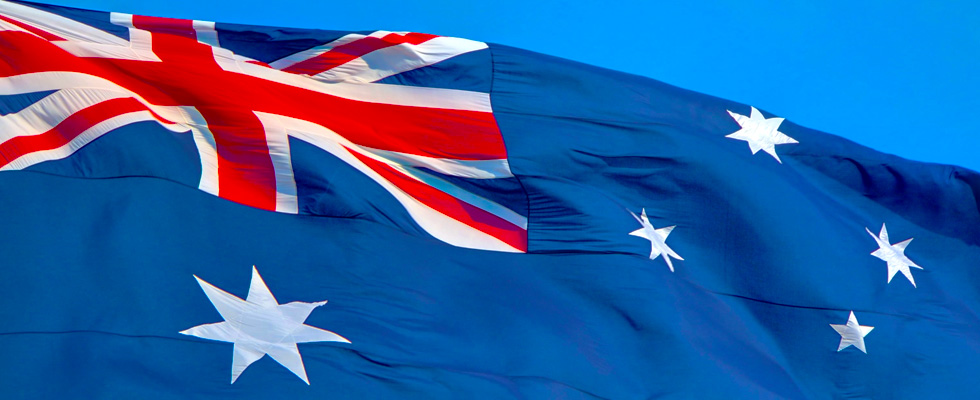“For we are Young and Free.” What a lovely line. I think of swimming at the beach, a cheering crowd at a concert, a happy family eating Christmas lunch.
Or we might think of the freedom to live where we want, to study what we want, to work where we want, and to buy what we want.
Below these delightful tip-of-the-iceberg freedoms, lie the four foundational freedoms of conscience, assembly, religion, and expression.
Freedom of conscience is your freedom not to be coerced to act against your convictions about what is good and what is evil. Mel Gibson’s 2016 movie Hacksaw Ridge, for example, celebrated the freedom of U.S. Marine Desmond Doss to bravely serve his country while not being forced to bear arms, something morally objectionable to him.
Freedom of assembly is your freedom to link arms with likeminded people, with people who share a common cause, and the freedom not to be forced to join a body whose convictions you don’t share. In Australia, forced university student union membership is a blight, a gross contravention of this freedom.
Freedom of religion goes far beyond membership of a mosque, temple, or church. Everyone has a worldview, whether you are an animist, atheist, or agnostic. Everyone has convictions about what a human being is, why we are here, and where we are going. Freedom of religion is your freedom to live out your worldview, and not to be forced to act against it.
Freedom of expression is the freedom to speak your mind, to argue, to agree or disagree. In the French parliament yesterday Prime Minister Edouard Philippe spoke passionately in defence of Charlie Hebdo, threatened this week with death for its cartoons of a Muslim leader. “You cannot, in our land, challenge with impunity freedom of thought, freedom of expression, and even the freedom to caricature!” France is pretty proud of its liberté.
These freedoms are interlaced, integral to our humanity, and delicate. An attack on one freedom is an attack on them all. To make laws that muzzle a person, or force them to act against their conscience, is to violate their soul. And these freedoms cannot endure undefended. They can vanish in a moment, in a puff of mal-conceived legislation.
As our nation faces the possibility of legislation to redefine marriage in federal law, our freedoms are especially endangered.
Just this month, LGBT activist Rodney Croome’s announced that “The politicians who supported the ‘No’ case should not be drafting the legislation.”
Try look past the imperious tone of this, and let Mr Croome’s statement sink in.
A hundred men and women that the Australian public has chosen to represent them, specifically to write laws on their behalf, “should not” in this case fulfil their sworn representative responsibilities.
This is thinly veiled totalitarianism. This is to say, “The people who write Australian laws should not be the people whom have been democratically elected, but the people who serve my special interests.”
Here is a man whose head is down, whose eyes are laser-focussed on the LGBT agenda, and who has lost sight of our democratic freedoms.
What makes this worse is what impels Mr Croome to make such statements. It is the appalling prospect, for him, that marriage redefinition legislation may include protections for Australians’ freedom of conscience, religion, and expression.
Right now, anti-discrimination legislation hangs above the head of every Australian like the sword of Damocles. At any moment someone can isolate something that you have said or written or blogged or even just ‘liked’ and accuse you of causing offense or ridicule to a person who belongs to any number of protected classes.
If marriage is redefined, then the sword becomes a whole lot heavier for anyone associated with wedding services, and the thread a whole lot finer. If their conscience finds homosexual conduct to be immoral, and if their conscience forbids them from participating—with their goods or services or talents—in a ceremony that celebrates homosexual conduct, then they will have to change their minds, get out of business, or be prosecuted.
It doesn’t matter that the rules of the game have changed around them, long after they opened their business. It doesn’t matter that they can distinguish the obvious difference between refusing to serve a person for who they are, and refusing to facilitate an activity for what it represents. It doesn’t matter that we already recognise and respect this distinction.
Freedoms will be crushed.
Many will shrug their shoulders at Mr Croome’s statement. “An attack on freedom and democracy? Meh.” But I hope for something better. I hope that we will wake up to our precious freedoms.
I don’t want my grandkids singing “For we are dumb and policed.”
“Young and free” has a much better ring to it.






















